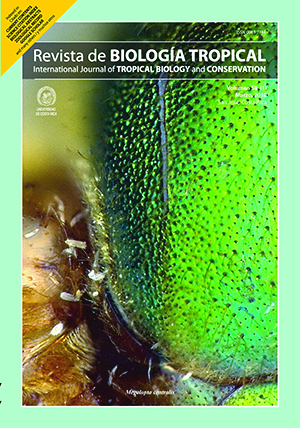Abstract
Gastropods are an important component in most of the fossil record; however, investigations have focused mainly on the characterization of the tafofacies and signatures in determined environments. We present qualitative and quantitative taphonomic data for the gastropod cf. Donaldina robusta assemblages from the La Joya Formation of the Sierra Agua Verde, Sonora State, (NW) Mexico. We analyzed 176 shells. Good preservation received a high taphonomic grade (A) and poor preservation a D. The shells were complete in 72% of cases (taphonomic grade B). Less than 10% are corroded or are parallel to the layer (grade A). This rock is petrographycally classified as wackestone, sedimentologically it is characterized by middle sorting (grade B) and low grading (grade A). The fossiliferous assemblage grades as A and B. Biostratinomic features of the skeletal assemblage are characteristic of sedimentologic concentra-tions of autochthonous-parautochthonous elements at the accumulation site. There was minimal reworking and transport in an environment of low energy, locally produced during a short period of accumulation.
##plugins.facebook.comentarios##

This work is licensed under a Creative Commons Attribution 4.0 International License.
Copyright (c) 2010 Revista de Biología Tropical






